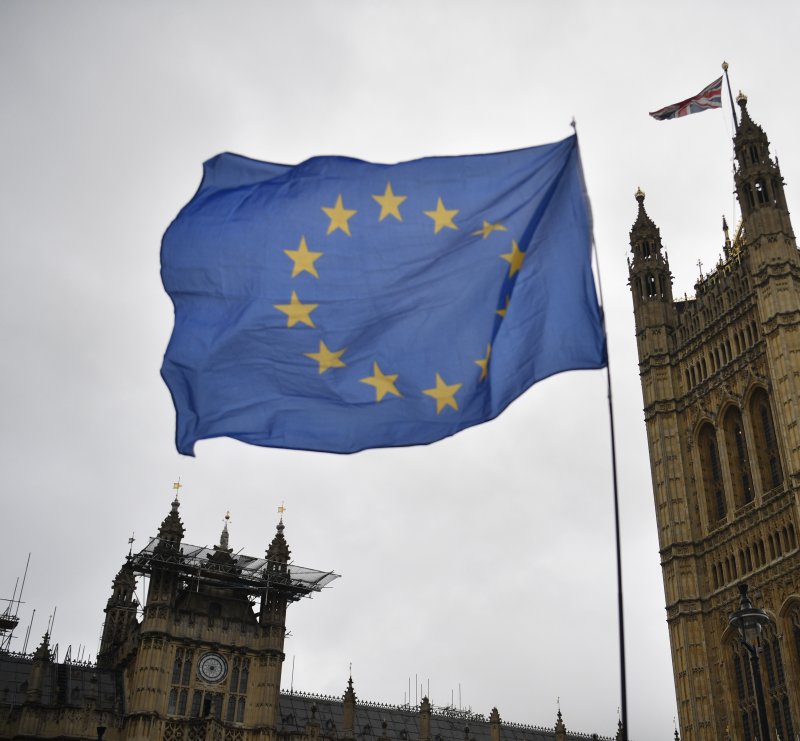A European Union flag is seen outside British Parliament Wednesday, as lawmakers returned from a suspension that was ruled unlawful by the British high court. Photo by Neil Hall/EPA-EFE
Sept. 25 (UPI) -- British lawmakers returned to work Wednesday after the nation's top court ended the suspension of Parliament ordered by Prime Minister Boris Johnson.
The British Supreme Court ruled Tuesday Johnson's move was unlawful and ordered the parliamentary session to resume. Johnson closed Parliament earlier this month, saying it was needed to end an overlong session and facilitate his domestic agenda.
The sudden return of Parliament prompted Johnson to cut short his visit to the U.N. General Assembly in New York City. He is scheduled to address lawmakers Wednesday afternoon.
Labor Party leader Jeremy Corbyn called on Johnson to resign Wednesday, saying his is the only British party that trusts Britons to have the final word on the planned departure from the European Union, set for Oct. 31.
Commons Speaker John Bercow said the official record will be changed so the reference to Parliament being prorogued will be expunged. Instead, it will read that both houses adjourned during the period of inactivity.
Some lawmakers have expressed anger toward Johnson and others, including Queen Elizabeth II, who aided and approved his plan to send lawmakers home.
Labor shadow solicitor general Nick Thomas-Symonds declared Tuesday's court ruling "the most damning judicial indictment of a government in modern times." He slammed British Attorney General Geoffrey Cox, who said the government will comply with the court's ruling, but called the session "dead."
"This is a dead Parliament. It should no longer sit," Cox said. "It has no moral right to sit on these green benches."
He added that lawmakers could have staged a vote of no confidence for Johnson, but they were too "cowardly."
Lawmaker Ken Clarke, who was expelled from the Conservative Party for dissenting with Johnson's move, said the high court judgement shows "this kind of action can never be taken by any future government" and that "parliamentary sovereignty remains intact."















